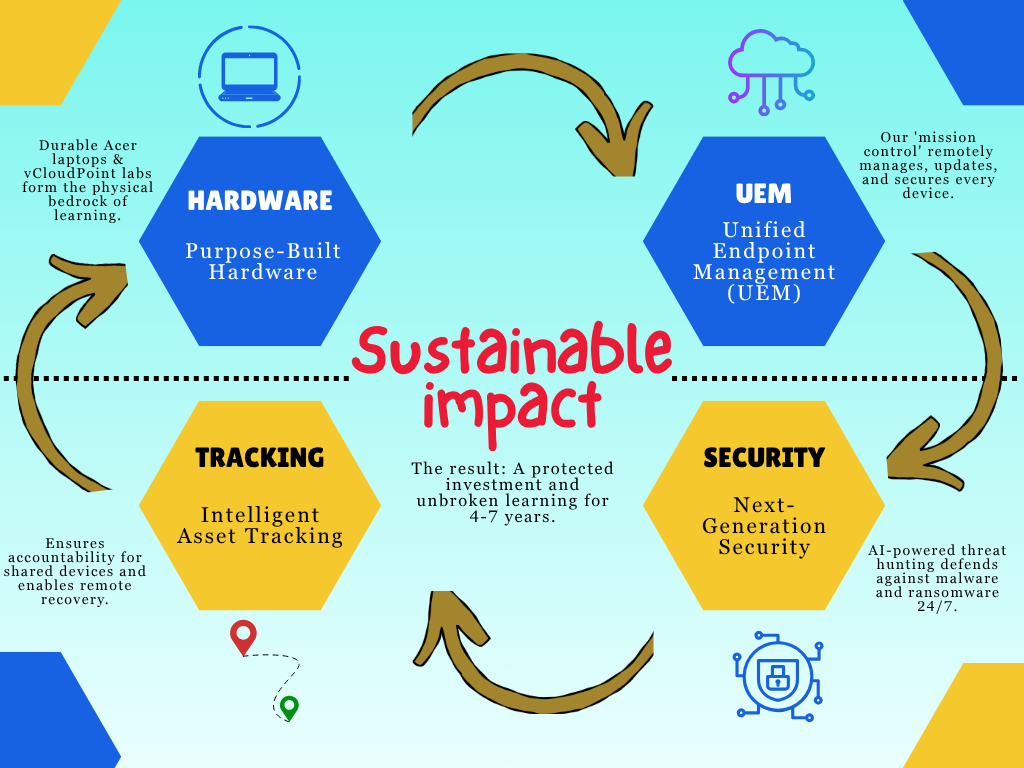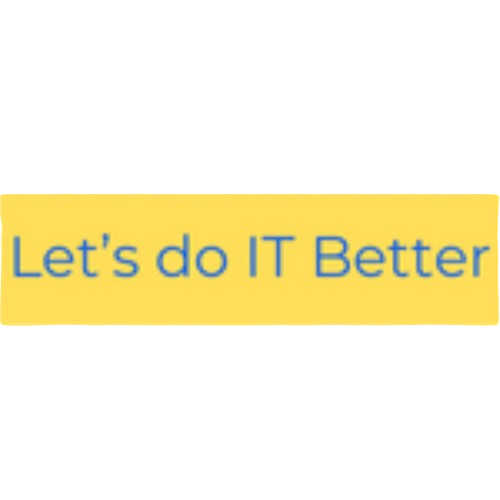Our Commitment to Teachers and Youth in Every Community
My journey in EdTech has always been guided by a simple, powerful belief: technology is not an end in itself, but a bridge. A bridge to knowledge, to opportunity, and to expression. While our primary mission at The Shule Project is to build these bridges within schools, we recognize that the ecosystem of learning and growth extends far beyond the classroom walls. Teachers, youth, and community leaders need the same tools to thrive, and our commitment to social responsibility reflects this broader vision.
The digital lab at Ngong Township Primary School stands as a testament to our focused educational strategy. But our work to empower communities is often more distributed, responding to specific, poignant needs that align with our core purpose.
Empowering Faith and Creativity: Tools for Modern Ministry
We recognized the International Christian Centre’s efforts to connect with their congregation in a digital age. By donating a desktop to their Nairobi West branch for ICT enhancement and another to the Buruburu church for automating their Connection Groups, we did more than just provide hardware. We provided a foundation for community cohesion. This technology streamlines administration, fosters deeper personal connections, and allows the church to focus more on its spiritual mission—a mission that provides crucial guidance and stability for the youth and families we serve.
Similarly, the donation to Friends Church Shichelele has had a beautiful, unintended outcome. The desktop is now a dedicated station for the Praise and Worship team to compose and write their original songs. This is a powerful example of how a single tool can unlock creativity. It empowers artistic expression, preserves cultural heritage, and provides the youth in that congregation with a positive, creative outlet. It’s a reminder that the gap we are bridging isn’t just about academics; it’s about enabling passion and purpose.
A Direct Call to Action: Supporting the Supporters of Education
Perhaps the most telling donation was one born from direct observation. A spot visit by our team to the Teacher Service Commission (TSC) Offices in Sabatia, Vihiga County, revealed the critical challenges our educators face on the administrative front. Seeing dedicated public servants hampered by a lack of basic technology was a compelling call to action. We immediately donated a computer to that office, a machine that now directly supports the very individuals who manage and empower teachers across the county.
“That donation to the TSC office was not a deviation from our mission, but a reinforcement of it. How can we expect teachers to foster a digital future if the system that supports them is operating in the analog past? Supporting the administrative backbone of education is not a side project; it is a strategic investment in the entire educational ecosystem.”
A Holistic Philosophy of Impact
These initiatives are not scattered acts of charity. They are intentional threads in a larger tapestry of community empowerment. Each donation—whether to a church group or a government office—is chosen because it strengthens the support network around the Kenyan youth and teacher. A more efficient church can better run its youth programs. A creative outlet can keep a young person engaged and inspired. A functional TSC office can better serve the teachers who shape our future.
While our primary and unwavering focus remains on deploying sustainable technology directly into schools, we will not abandon our broader social responsibility. The same principles that guide our school projects—durability, relevance, and strategic impact—guide these community investments.
We understand that empowering the next generation requires a multi-faceted approach. It requires building bridges not only in the classroom but also in the communities that raise our children and the institutions that support our educators. By supporting The Shule Project, you are investing in this holistic vision—a future where every tool we place, in every context, helps to build a more skilled, creative, and empowered Kenya.
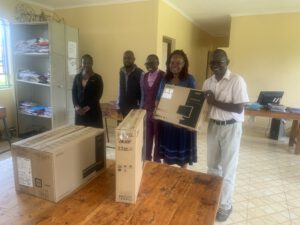
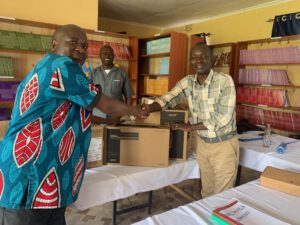
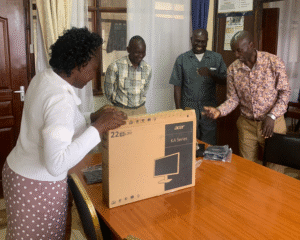
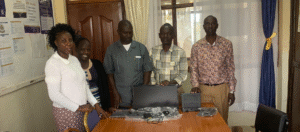
-
Facebook
-
Twitter
-
Linkedin
-
Reddit
-
Whatsapp


